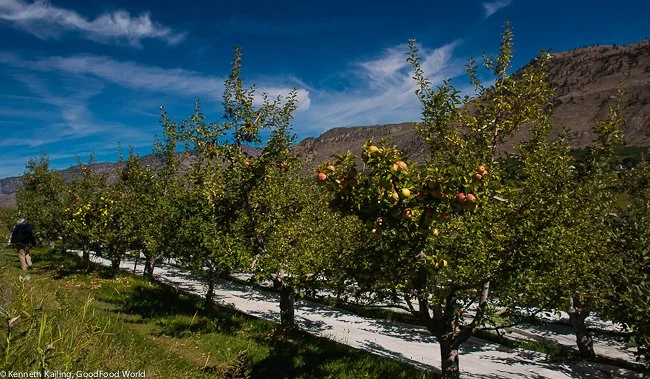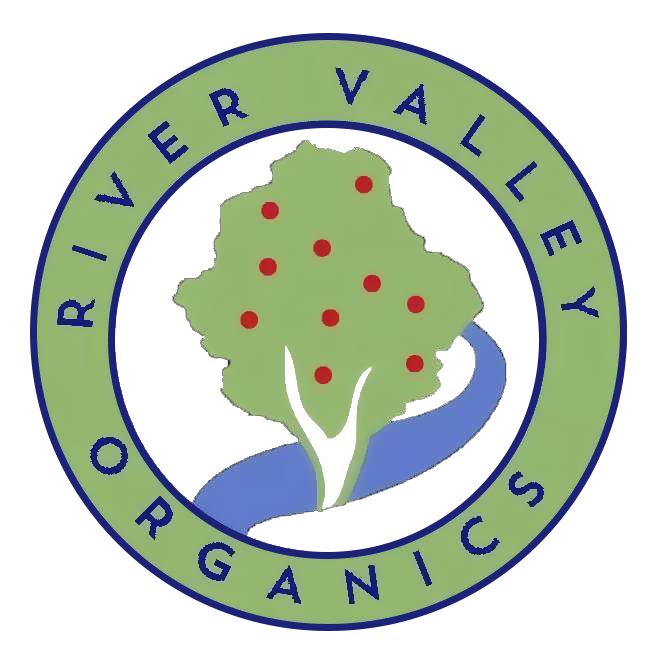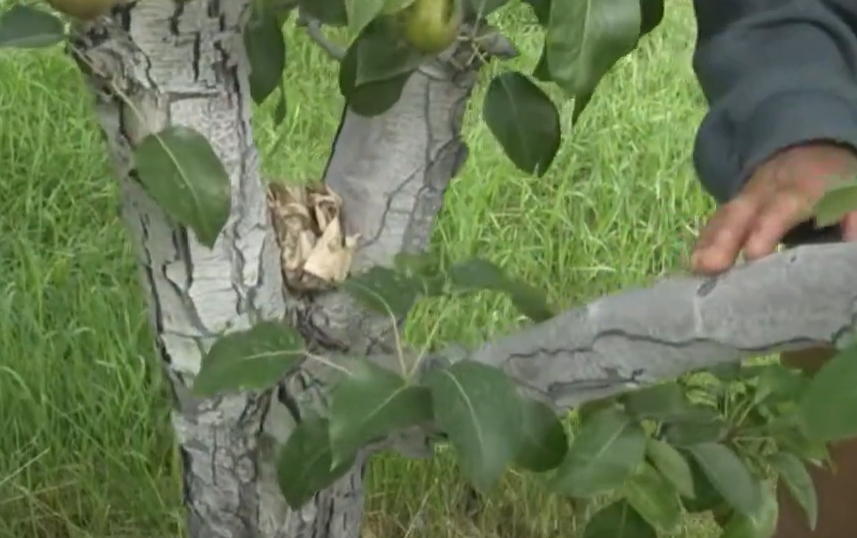
Growing Organic Fruit
Using newspaper to attract earwigs to a pear tree. Earwigs eat the pest Psylla pyri, commonly known as a “pear psylla,” which can severely damage pears.
Transitioning From Conventional to Organic
When River Valley Organics purchased their first orchard, George and Apple Otte were experienced organic gardeners, but they had to transition their fruit from conventional growing practices to organic production.
In Washington state, this takes a minimum of three years, in order to allow trees and soil to fully process out pesticides or herbicides.
There are many things to consider when transitioning to organic, but one of the most significant is pest control.
Organic orchards use different strategies to manage pests, like:
Biological Control: Utilizing beneficial insects and microorganisms to control pests.
Cultural Control: Employing techniques like crop rotation, cover cropping, and proper pruning to reduce pest and disease pressure.
Mechanical Control: Using physical methods like handpicking, trapping, and netting to manage pests.
Organic orchards and farms also have to be diligent about managing weeds and soil health.
Challenges and Benefits
Apple aphids
Coddling moth trap
Apple covered in Kaolin clay for protection
Western cherry fruit fly trap
Conventional farming relies heavily on synthetic pesticides and fertilizers to control pests, weeds, and to boost plant growth because these farms prioritize high yields and are also focused on blemish free fruit.
In addition, GMOs are sometimes used to introduce specific traits into plants.
The fundamental guidelines for organic agriculture as defined by USDA are to allow naturally occuring substances and to prohibit synthetic. USDA allows for some exceptions; for instance, pheromones have long been used as an effective, non-toxic way to “confuse” insects that may otherwise infest organic crops, especially fruit.
In addition, organic orchards uses farming techniques that promote a healthy ecosystem—including creating habitat for beneficial insects.
At River Valley Organics, we use many different methods to control pests naturally, including inspecting the trees regularly so we are always aware of what is happening in our orchard ecosystem.
In addition, fruit trees need to be nourished. Products like fish emulsion and practices like composting help produce delicious fruit without the adverse health effects of synthetic fertilizer.
Let us know if you can taste the difference!





